Locarno shows the two faces of Swiss cinema
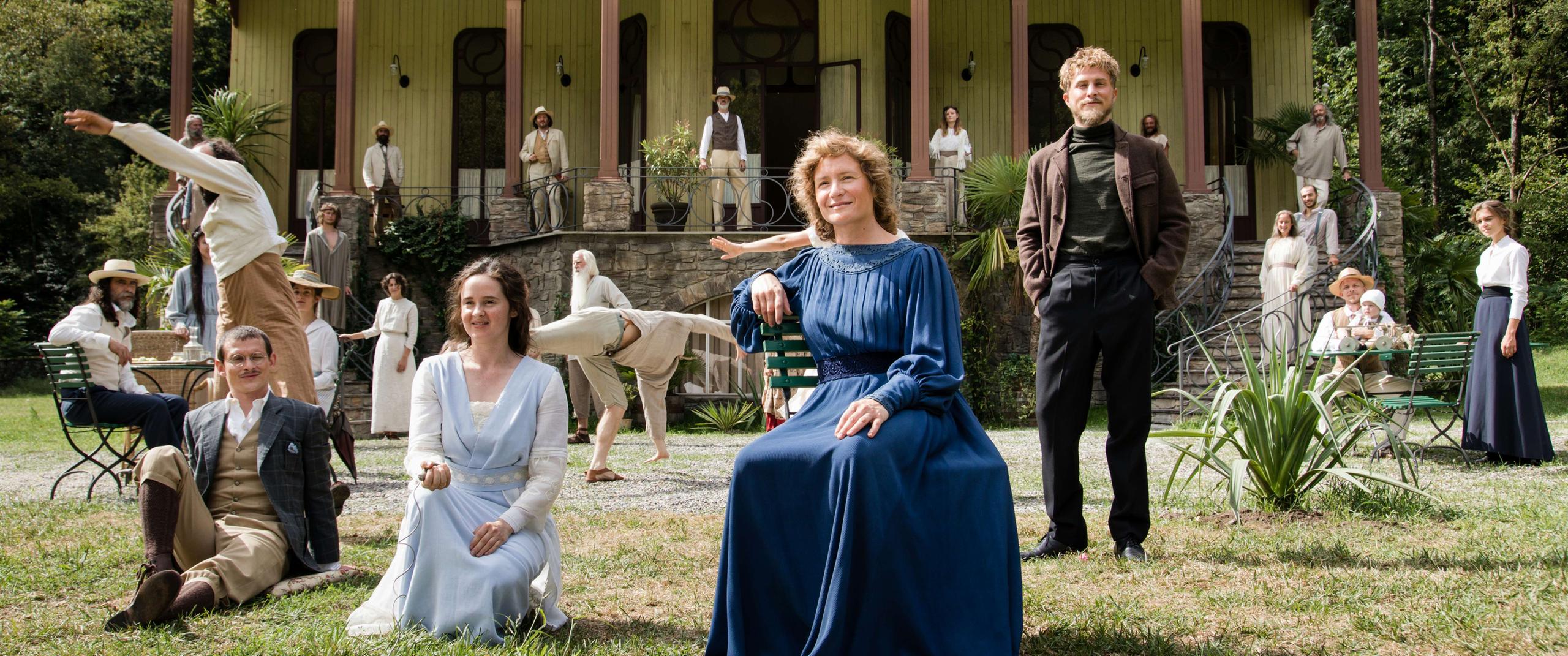
Where is Swiss fiction filmmaking headed as the cinema industry emerges from the hard realities of the pandemic? Stefan Jäger’s Monte Verità and Lorenz Merz’s Soul of a Beast, two major productions premiering at the 2021 Locarno Film Festival, offer a glimpse at the creative crossroads ahead.
If you’re the kind of person who believes in meteorological omens, you might be forgiven for declaring the contest for stylistic supremacy in Swiss cinema over already.
On August 6, Soul of a Beast celebrated a remarkable premiere at the Locarno Film Festival: with a glorious summer sun beating down outside, a large crowd gathered inside the 2,800-seat Palexpo screening hall, vaccination certificate or negative Covid test in hand. As director Lorenz Merz took to the stage to introduce their film, a neon-drenched, mezcal-laced fever dream of a family drama, he was met by thunderous applause – applause that was emphatically repeated as the end credits started rolling.
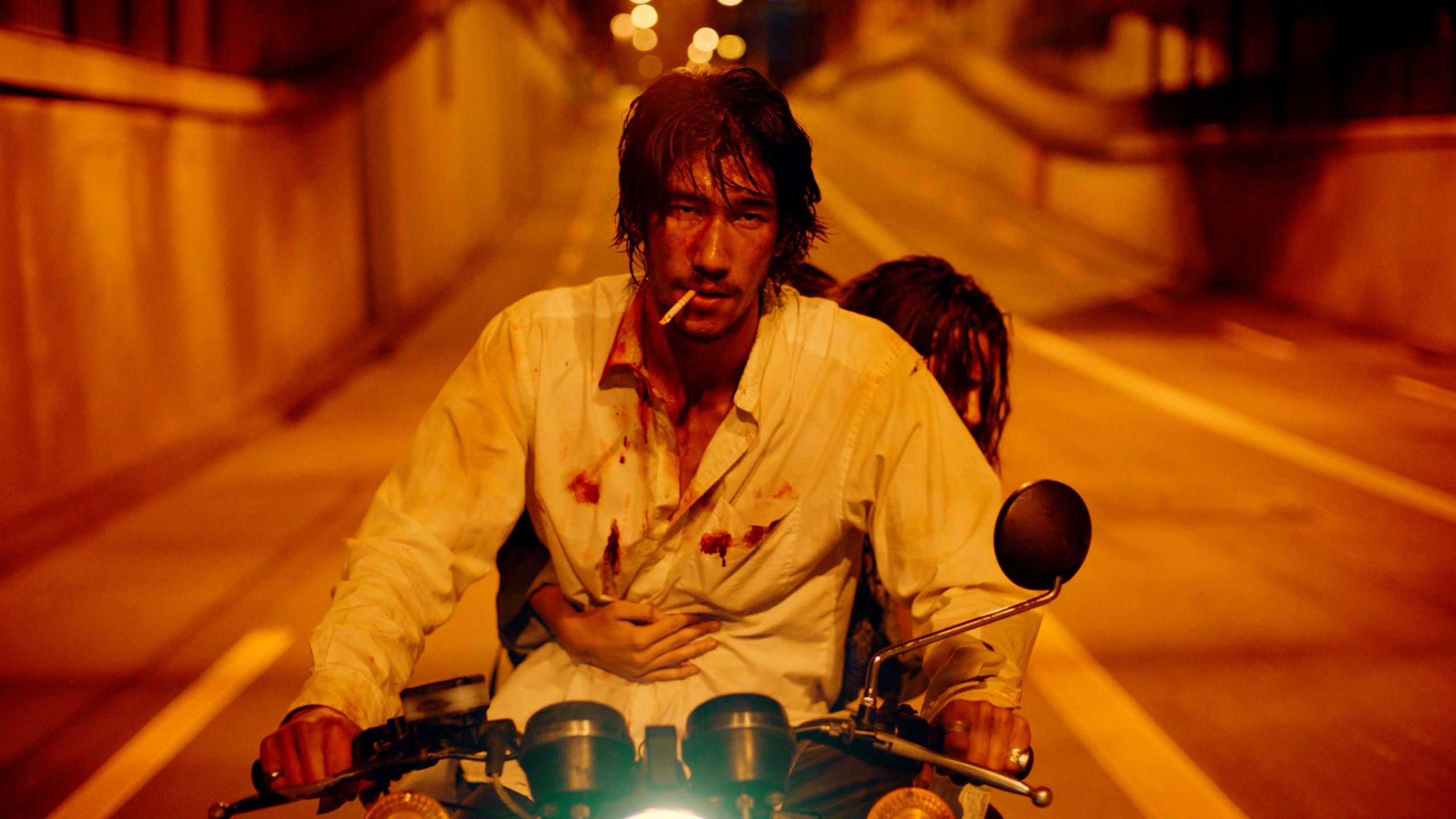
The following evening, Monte Verità was scheduled to have an even more auspicious Locarno premiere – under the stars, on the vaunted Piazza Grande, most of its 8,000 iconic yellow chairs occupied by an audience eager to be among the first to see Stefan Jäger’s cinematic tribute to nearby Ascona’s titular hill and its place in Utopian history.
No such luck though: torrential rainfall engulfed the Lago Maggiore region that night. The premiere of the latest homegrown high-budget production seeking to bring Swiss history to life and replicate the successes of Zwingli or TV’s Labyrinth of Peace proved a literal washout.
Beyond God’s will
But as far as we know, it is not the gods who make or break the success of a movie, or an entire mode of filmmaking. That power rests in the hands of audiences, critics, and funding bodies, particularly in Switzerland, where debates about the latter’s allegedly creativity-stifling effect have been at the centre of the national film conversation at the very least since 2012 – the year that journalist Florian Keller coined the untranslatable term “Schissfilm”External link to decry the creative doldrums and apparent thematic cowardice of Swiss cinema.
Filmmakers, it is said, are afraid of alienating the committees in charge of approving financial aid for their projects. So, when they send in proposals for consideration, most of them default back to broadly accessible, generally uncontroversial fare.
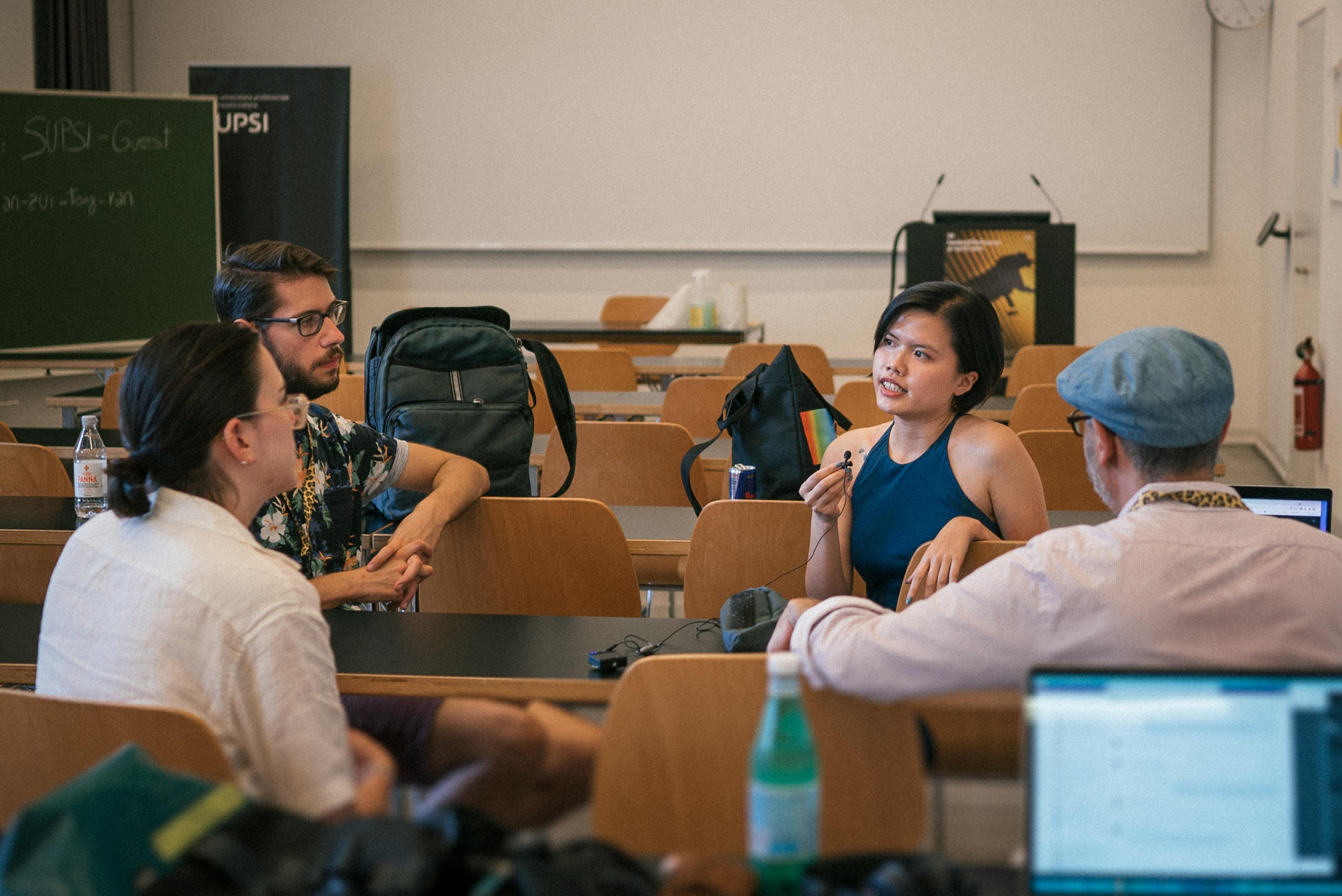
More
Critics Academy weighs in on Locarno fare
Yes, the results of this are a robust stream of locally produced movies coming to Swiss cinemas and reasonably steady domestic box office returns. But this also seems to come at an artistic price: even the most casual Swiss moviegoer will have been struck by the formulaic plots and repetitive tropes – old woman does something unexpected! an “obscure” episode from Swiss history! bestseller adaptation! – that dominate Switzerland’s screens. Comedian Patrick Karpiczenko created an entire websiteExternal link dedicated to lampooning this tendency.
It comes as no surprise that the international profile of Swiss feature filmmaking has significantly diminished over the last 20 years or so. Now, in a world where a Korean satire such as Parasite can become one of 2019’s biggest hits, even the most financially lucrative Swiss productions struggle for international relevance: look no further than the lacklustre Netflix release of Michael Steiner’s The Awakening of Motti Wolkenbruch (2018), the coming-of-age story of a young Jewish man at loggerheads with his mother and religious traditions.
Looking ahead
So where do we go now from here, given that the entire industry is currently trying to deal with the economic setbacks and logistical challenges caused by the first 18 months of the COVID-19 pandemic? Although it is always risky to hazard a guess, particularly when it comes to something as fickle as art, it seems reasonable to look at the most high-profile Swiss presences at this year’s Locarno Film Festival as a a kind of bellwether for the stylistic road ahead.
While thematically, Monte Verità, with its focus on the proto-hippie Utopian movement, which ran an alternative sanatorium atop Monte Verità in the early 20th century, is very much concerned with conceiving of new ways of doing things, the film itself is, in Swiss cinema terms, conducting business as usual.
Along with his production team, director Stefan Jäger, who had been nursing the idea of making this film for more than 30 years, secured federal funding as well as additional support from Germany and Austria. The resulting seven-million-franc budget (US$ 7.6 million) – a sizeable sum by Swiss standards – is undeniably visible on screen: the production design looks impeccable, as do the costumes; and the film sports an impressive array of prominent German-language actors of different nationalities (Max Hubacher, Julia Jentsch, Joel Basman, Hannah Herzsprung).
This international aspect is highlighted even further by the decision to have the plot revolve around an Austrian protagonist (played by Maresi Riegner), meaning that the film is shot almost entirely in accent-free High German, and thus easily exportable to the two countries that co-produced it.
Narratively, meanwhile, Monte Verità isn’t shy about treading the well-trodden paths, starting with Kornelija Naraks’ overbearing script, which frequently foregoes implicit storytelling in favour of bluntly announcing its intentions. (One memorable instance sees the protagonist’s oppressive husband stating that raping his wife is “my right.”).
Once Riegner’s fictional main character has settled into the commune on Monte Verità, the plot’s adherence to the established tropes of romance and self-actualisation dramas becomes positively religious.
The beast is in the details
You couldn’t come up with a more perfect foil for this than Soul of a Beast, which competes in Locarno’s international competition for the festival’s top prize.
According to Lorenz Merz, the impressionistic, pathos-laden tale of a star-crossed love triangle, set in a stylised version of Zurich where the TV news is in French and authoritarianism seems to lurk just around the corner, is antithetical to Swiss cinema’s penchant for broad accessibility and big-name actors almost by design: “I wouldn’t want to make a movie that pleases everyone,” he told a group of Swiss critics.
In fact, at the very beginning of the thought process that would eventually mature into the gleefully messy film that was greeted so enthusiastically at the Palexpo theater, “the intention was to make a movie you wouldn’t see here in Switzerland.”

Deliverance
On that, Soul of a Beast definitely delivers, assaulting its audience with a dizzying blend of gaudy colours, ecstatic camera movements, overlapping soundscapes, non-linear narration, and a magic-infused story featuring electrical giraffes and anime-style Japanese voiceovers. It’s an imperfect, often barely coherent mix of styles and ideas with the potential to frustrate any attempt at making sense of it. Is it a masterpiece of Swiss cinema? Probably not. Is it loose and challenging in a way that Swiss cinema all too rarely is, or gets to be? Absolutely.
But when asked about the international perspectives of Soul of a Beast, Merz points to a hurdle that may have been created by the creative complacency of Switzerland’s recent cinematic output and its resulting dip in international relevance: sales executives, even those of companies with a track record of distributing “weird” movies on a global scale, are reluctant to take on Soul of a Beast in part because of its comparatively local character.
“I don’t know how to sell this,” is a phrase Merz was confronted with in Locarno, suggesting that while electrical giraffes are all well and good, having characters discuss them in Swiss German may be a bridge too far.
The immediate future of Swiss cinema, however, will be decided at home. If the Locarno washout does not prove an ill omen, Monte Verità, with its tried-and-true recipe for success, is well positioned to perform strongly when it opens in Swiss cinemas on August 26. The more interesting question will be whether Soul of a Beast, which is scheduled for March 2022, can transcend its own stylistic unwieldiness and be competitive at the domestic box office. We’ll have to wait and see – the one thing Swiss cinema does excel at.
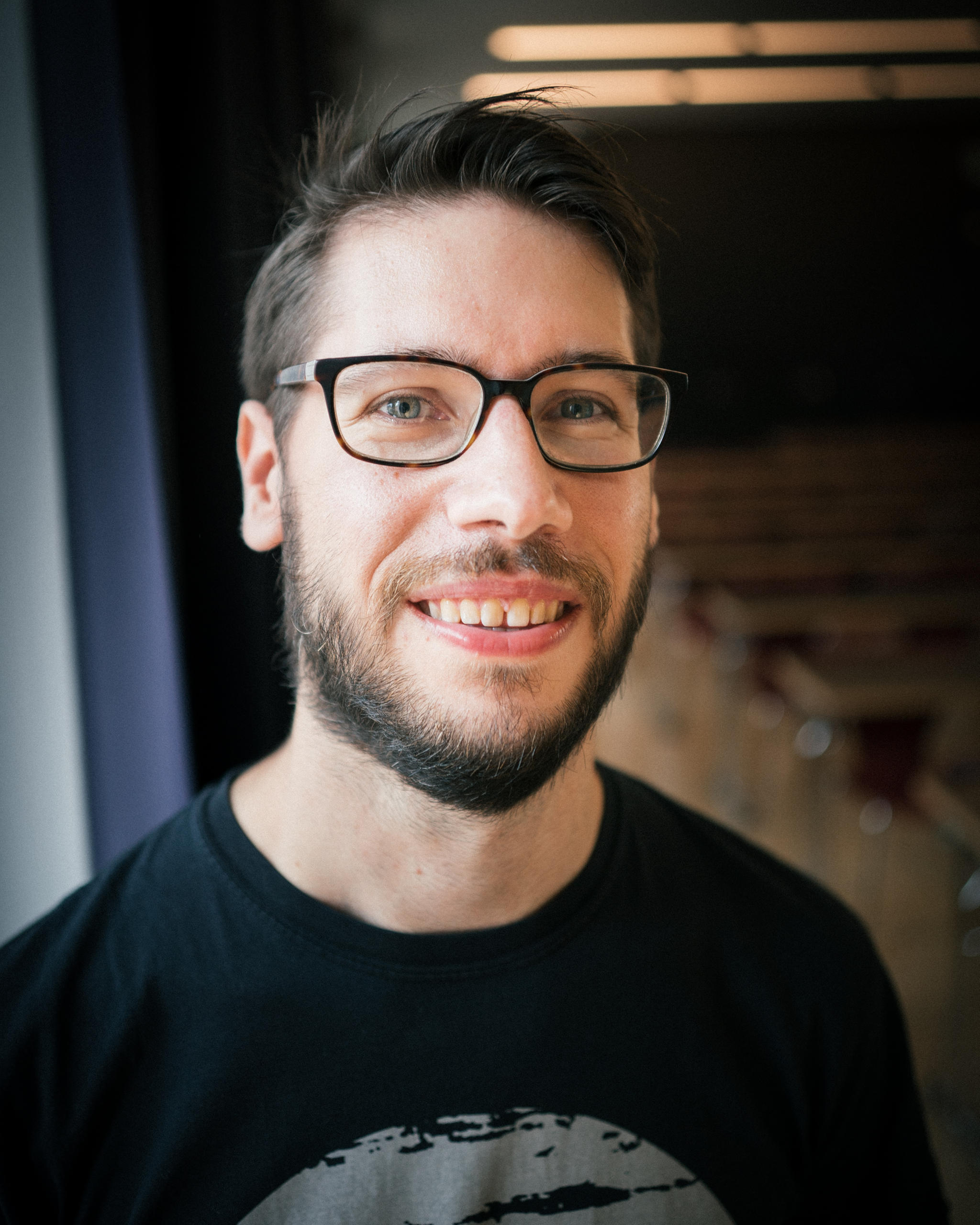
Alan Mattli has been writing consistently about cinema, in German and in English, both on his own blog FacingTheBitterTruth.comExternal link and for a variety of predominantly Swiss publications, such as Frame and Maximum Cinema. Meanwhile, he is writing his doctoral thesis in English Literature.
Mattli is also taking part in this year’s Locarno Critics Academy – a group of 10 young film and media critics from all over the world selected for an intensive immersion in the festival.
You can follow him on Twitter and Instagram (@AlanMattli), and also on Letterboxd (alanmattli).

In compliance with the JTI standards
More: SWI swissinfo.ch certified by the Journalism Trust Initiative









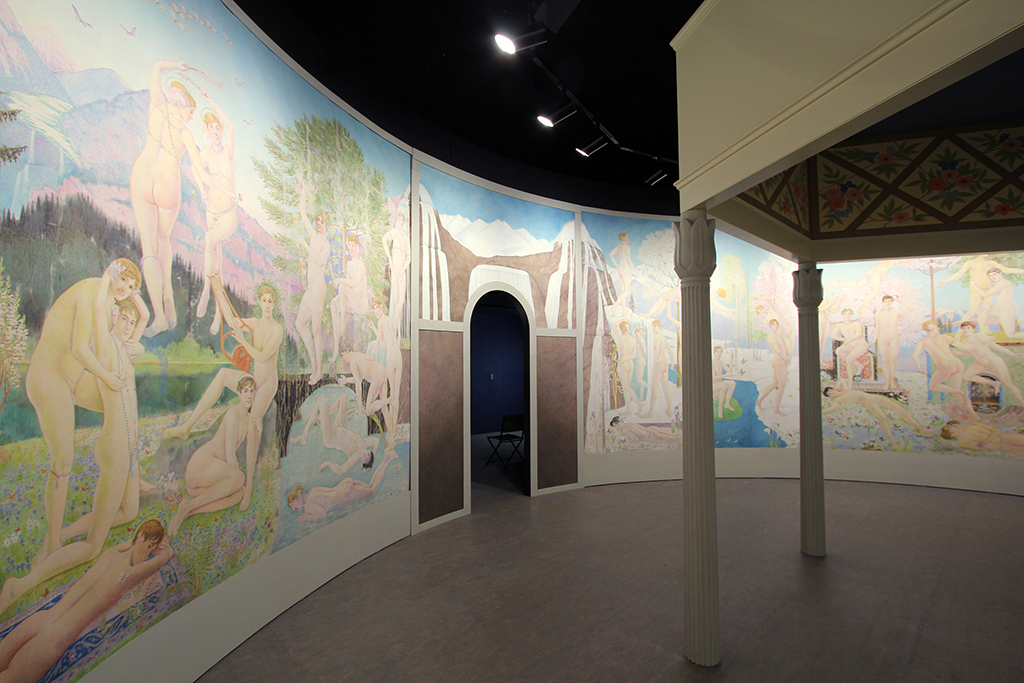

You can find an overview of ongoing debates with our journalists here . Please join us!
If you want to start a conversation about a topic raised in this article or want to report factual errors, email us at english@swissinfo.ch.